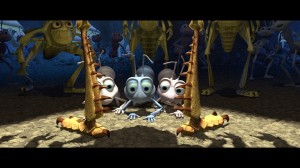The Haftara of VaYikra begins with the claim that G-d does not burden us with sacrifices:
לֹא הֶעֱבַדְתִּיךָ בְּמִנְחָה וְלֹא הוֹגַעְתִּיךָ בִּלְבוֹנָה לֹא קָנִיתָ לִּי בַכֶּסֶף קָנֶה
I did not burden you with mincha, and did not weary you with incense offerings. You did not buy Me spice sticks with money (Yeshayahu 43:23-4)
To us, the word mincha refers to the afternoon prayer, the shortest of the three daily prayer services. But what does the word mean in the Tanach? Let us see where else it is used:
- When Yaakov was about to meet Esav on his way back to the Land of Israel. Recalling Esav’s vow to kill him, Yaakov attempts to appease him by sending him gifts – hundreds of goats and rams, dozens of camels and donkeys. The Text calls this gift “mincha“.
- When Yosef’s brothers need to go back to the “ruler of Egypt” with their brother Binyamin. The brothers take along a “mincha” to give the ruler. It is not much – spices, honey, and nuts – but they dare not approach this powerful man empty-handed.
- At the beginning of the time of the Judges. Israel was subjugated by the king of Moav, and the judge Ehud ben Gera was sent as the head of the delegation bringing the “mincha” to the king. It doesn’t list quantities there, but it does say that it took many people to bring it, and that delivering it entailed a long and involved ceremony.
Now it should be clear what type of gift a “mincha” is. It is a tribute, a way to appease and show deference to a powerful ruler.
We do not live in a world where people give tributes to their rulers, so it may be hard for us to visualize what giving a tribute might be like. Fortunately, we do have a shared cultural experience that will serve just as well: the 1998 Disney/Pixar movie, A Bug’s Life. The ants slave all summer to gather food as a tribute for their rulers, the grasshoppers. An accident destroys the entire tribute, the grasshoppers threaten their lives, and the plot of the movie is about finding someone to save them from their wrath.
That is “mincha“.
So when the Haftarah says, “I did not burden you with mincha,” it means that the relationship between G-d and the Jewish People is not like the relationship between the grasshoppers and the ants.
In fact, it is in the Parsha of Vayikra, which details the various sacrifices that can be offered to G-d that we find out what the content of a mincha is:
וְנֶפֶשׁ כִּי תַקְרִיב קָרְבַּן מִנְחָה לַה’ סֹלֶת יִהְיֶה קָרְבָּנוֹ וְיָצַק עָלֶיהָ שֶׁמֶן וְנָתַן עָלֶיהָ לְבֹנָה:
If a soul would bring a mincha to Hashem, his sacrifice shall be of flour, oil shall be poured over it, and frankincense shall be put on it. (VaYikra 2:1)
The Midrash expounds on the verse in the Haftarah:
לא העבדתיך במנחה זה קומץ מנחה. ולא הוגעתיך בלבונה זה קומץ לבונה. לא קנית לי בכסף קנה- ר’ הונא בשם ר’ יוסי אמר קינמון היה גדל בא”י והיו עזים וצבאים אוכלין ממנו
“I did not burden you with mincha“: that is the handful of the mincha; “and did not weary you with incense offerings”, that is the handful of frankincense; “you did not buy Me spice sticks with money”: R’ Huna in the name of R’ Yossi said: cinnamon grew in Israel; goats and deer used to eat them. (Midrash Eicha Rabba 3)
The mincha that G-d commanded us to bring is a handful of flour, and the incense is a handful of locally grown spice. You bring some flour and oil and some spices; when the Cohen offers it up on the altar, he uses only a handful of that mix. Essentially, we give G-d a very small pancake.
It is a very strange tribute that the King of Kings, Creator of the Universe, asks of us.
It is more like the kind of gift that one gives to someone very close to you, someone that you don’t need to impress, someone who is genuinely pleased that you thought of them, where it is the giving that counts and not the value of the gift. That is the type of relationship that G-d wants us to have with Him.
Perhaps that is why, with the altar gone, and prayers replacing the sacrifices of VaYikra, the shortest of those prayer services is Mincha. We interrupt our day to offer a little bit of our time to our Creator – a pancake’s worth.
Copyright © Kira Sirote
In memory of my father, Peter Rozenberg, z”l
לעילוי נשמת אבי מורי פנחס בן נתן נטע ז”ל



Dear Kira, Thank you for bringing to light the inner dimension of קרבן מנחה and tefila mincha. The parallel to the Bug’s Story is bril (Scottish word). Blessings, Eta